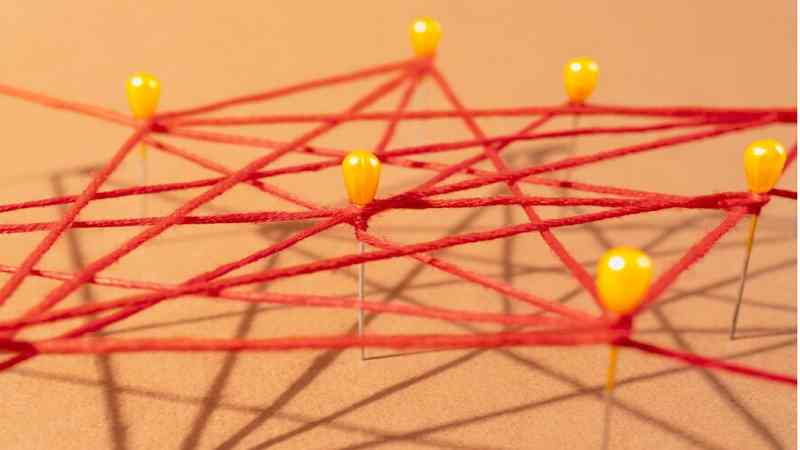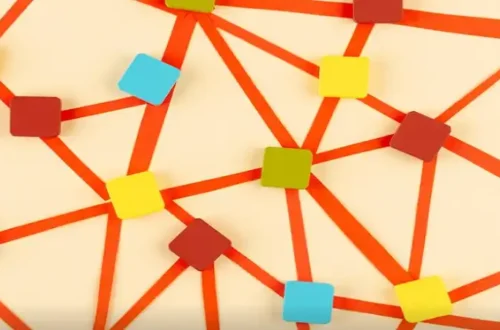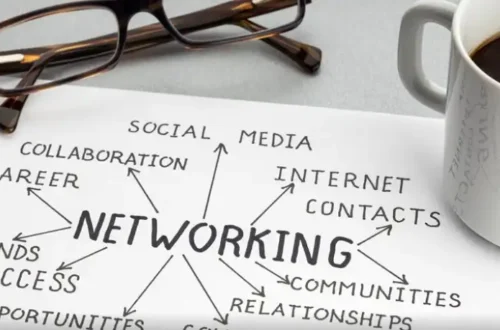In today’s fast-paced world, it’s easy to feel disconnected. With the rise of digital communication, many of us are spending more time on screens and less time building real, meaningful relationships. Whether it’s with family, friends, coworkers, or even strangers, connecting with others is essential for personal well-being and professional growth. Strong, authentic connections are the foundation of a fulfilling life, but how do you go about creating and nurturing these connections? This article provides practical hints for building and strengthening meaningful relationships, no matter the context. Hints for Building Stronger Connections
Why Connections Matter
Before we dive into the specific hints for building connections, it’s important to understand why they matter so much. Relationships—both personal and professional—are a key factor in emotional and psychological well-being. Research consistently shows that having strong social connections can reduce stress, improve happiness, and increase resilience during tough times. Whether it’s a friend to confide in, a colleague to collaborate with, or a mentor to offer guidance, connections help us feel supported and less isolated.
In the workplace, effective connections can boost career prospects, improve team collaboration, and increase job satisfaction. On a personal level, connecting with others can help you grow emotionally, expand your perspective, and create a sense of belonging.
However, building these strong connections doesn’t happen by chance. It requires intentional effort, patience, and a willingness to be open and vulnerable. Here are some hints that will help you develop deeper, more genuine relationships. Hints for Building Stronger Connections
1. Be Present and Engaged
One of the most important factors in any relationship is attention. It’s easy to become distracted, especially in an age where we’re constantly surrounded by notifications and distractions. But if you want to build meaningful connections, you need to be truly present with the person you’re interacting with. This means putting down your phone, closing your laptop, and focusing entirely on the conversation at hand.
When you give someone your full attention, they feel valued and understood. This level of attentiveness shows respect for the other person and helps build trust. Whether it’s a quick chat with a friend or a deep conversation with a partner, active listening is key. Nod, maintain eye contact, and occasionally interject with thoughtful comments or questions to show you’re engaged in the conversation.
2. Cultivate Empathy
Empathy—the ability to understand and share the feelings of another—is a cornerstone of connection. To truly bond with someone, you must be able to put yourself in their shoes and see the world from their perspective. This doesn’t mean you always have to agree with them, but it does mean that you acknowledge and validate their feelings.
Empathy is built through active listening, patience, and an open mind. When someone shares something personal with you, resist the urge to offer immediate advice or judgment. Instead, focus on listening deeply and responding with compassion. Phrases like, “That sounds really tough,” or “I can’t imagine how you must feel,” show that you’re validating their experience, which strengthens the emotional bond.
3. Be Genuine
Authenticity is essential in building any meaningful connection. People can sense when you’re being insincere or trying to be someone you’re not. To create trust and rapport, it’s important to be your true self—flaws and all. Hints for Building Stronger Connections
Being genuine doesn’t mean oversharing or being brutally honest all the time; it means being transparent and real in your interactions. If you’re going through a tough time, don’t pretend that everything is fine. If you’re excited about something, let that excitement show. Similarly, be honest about your needs and boundaries. When people see that you’re comfortable being yourself, it encourages them to do the same, creating an environment where trust can flourish.
4. Show Appreciation
We all like to feel appreciated, and showing gratitude is one of the easiest ways to strengthen your connections with others. Whether it’s a small act of kindness or a big favor, expressing thanks can go a long way in building goodwill.
Take the time to acknowledge the efforts of others, whether through a simple “thank you” or a more elaborate gesture like a handwritten note or a thoughtful compliment. The key is to make your appreciation specific and sincere. Instead of just saying, “Thanks for your help,” try something like, “I really appreciate how you took the time to listen to my concerns and offer thoughtful advice.”
When people feel valued, they’re more likely to invest time and energy into the relationship, creating a cycle of positivity that strengthens your connection over time.
5. Invest Time and Energy
Building meaningful relationships takes time. You can’t form a deep connection with someone after just one or two interactions. True relationships require consistent effort, especially in today’s world, where it’s easy to get sidetracked by daily responsibilities.
This doesn’t mean you need to spend every moment with the people you care about, but it does mean prioritizing them in your life. Schedule regular catch-ups, check in with people even when things seem fine, and make an effort to be there for others when they need you. Over time, these small investments will pay off in the form of deeper and more meaningful bonds. Hints for Building Stronger Connections
6. Practice Vulnerability
Vulnerability is one of the hardest but most rewarding aspects of connection. When you allow yourself to be vulnerable with someone, you open the door for them to do the same. This exchange of emotions, thoughts, and experiences creates a deep sense of closeness and trust.
Being vulnerable doesn’t mean sharing every detail of your life, but it does involve opening up about your feelings, struggles, and desires in a way that is honest and authentic. When you share your fears or uncertainties, it invites others to connect with you on a human level, rather than just on a surface level.
For example, telling a friend, “I’ve been feeling really stressed at work lately” or “I’m struggling with my self-confidence” can create a bond that goes beyond small talk. It shows that you trust the other person with your emotions, which is the foundation for any lasting connection.
7. Be Patient and Understanding
Not every connection will form instantly, and not every relationship will develop at the same pace. Some people need more time to open up or may have different communication styles that take a while to understand. Practice patience as you navigate these dynamics.
If someone seems distant or hesitant, don’t take it personally. Instead, respect their pace and give them the space they need. Over time, as trust builds, they may become more open. Likewise, be patient with yourself. Sometimes, connections take longer to form than we expect. But with patience, you will start to see the fruits of your efforts.
8. Be Supportive in Times of Need
One of the quickest ways to strengthen a connection is by being there for someone in times of need. Whether it’s emotional support during a crisis, physical assistance when they’re sick, or a listening ear when they’re feeling down, showing up for people during difficult times can deepen your bond.
However, it’s important to be genuine in your support. If you say you’ll be there for someone, make sure you follow through. Empty promises or half-hearted attempts at support can damage relationships and make others feel like they can’t rely on you.
9. Be Respectful of Boundaries
Every individual has personal boundaries, and respecting them is crucial for maintaining healthy relationships. Boundaries can be physical, emotional, or even intellectual. Some people need more space, others may be more reserved in sharing their emotions, and some may have different preferences when it comes to communication.
Pay attention to the signs and cues that indicate a person’s boundaries, and be respectful of them. If someone needs time alone, respect that. If they’re not comfortable discussing a particular topic, move on to something else. Acknowledging and respecting boundaries fosters trust and shows that you value the other person’s comfort.
10. Keep the Fun Alive
While deep conversations and emotional support are crucial, it’s also important to keep the fun and lightheartedness alive in any relationship. Shared laughter and experiences create memories that help bond people together. Whether it’s going to a concert, trying out a new hobby, or simply watching a movie together, finding ways to have fun and enjoy each other’s company strengthens the connection.
Laughter is a natural bonding tool—it releases feel-good chemicals like oxytocin and helps people feel more at ease with one another. So, don’t be afraid to let loose and share a joke or engage in playful activities with the people in your life.
11. Know When to Let Go
Not all relationships are meant to last forever, and that’s okay. Sometimes, people grow apart, or you realize that a particular connection isn’t serving you in a positive way. Recognizing when it’s time to let go is just as important as knowing how to build connections in the first place.
If a relationship is toxic, draining, or no longer aligned with your values, it may be best to step away. While it’s important to invest in relationships, it’s equally important to protect your own well-being. Letting go of relationships that no longer serve you can open the door to new, healthier connections.
Conclusion
Building and maintaining meaningful connections takes effort, but the rewards are well worth it. By being present, cultivating empathy, practicing vulnerability, and being supportive, you can create deeper, more authentic relationships with the people around you. Remember, strong connections are built over time, through consistent effort and genuine care. Stay patient, be yourself, and invest in the relationships that matter most. After all, the connections you form today can lead to a lifetime of support, growth, and happiness. Hints for Building Stronger Connections





